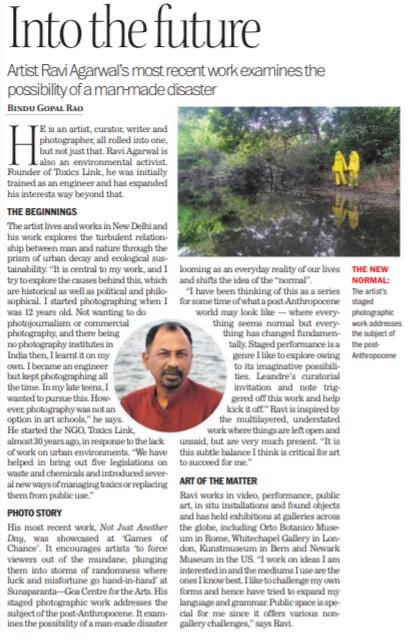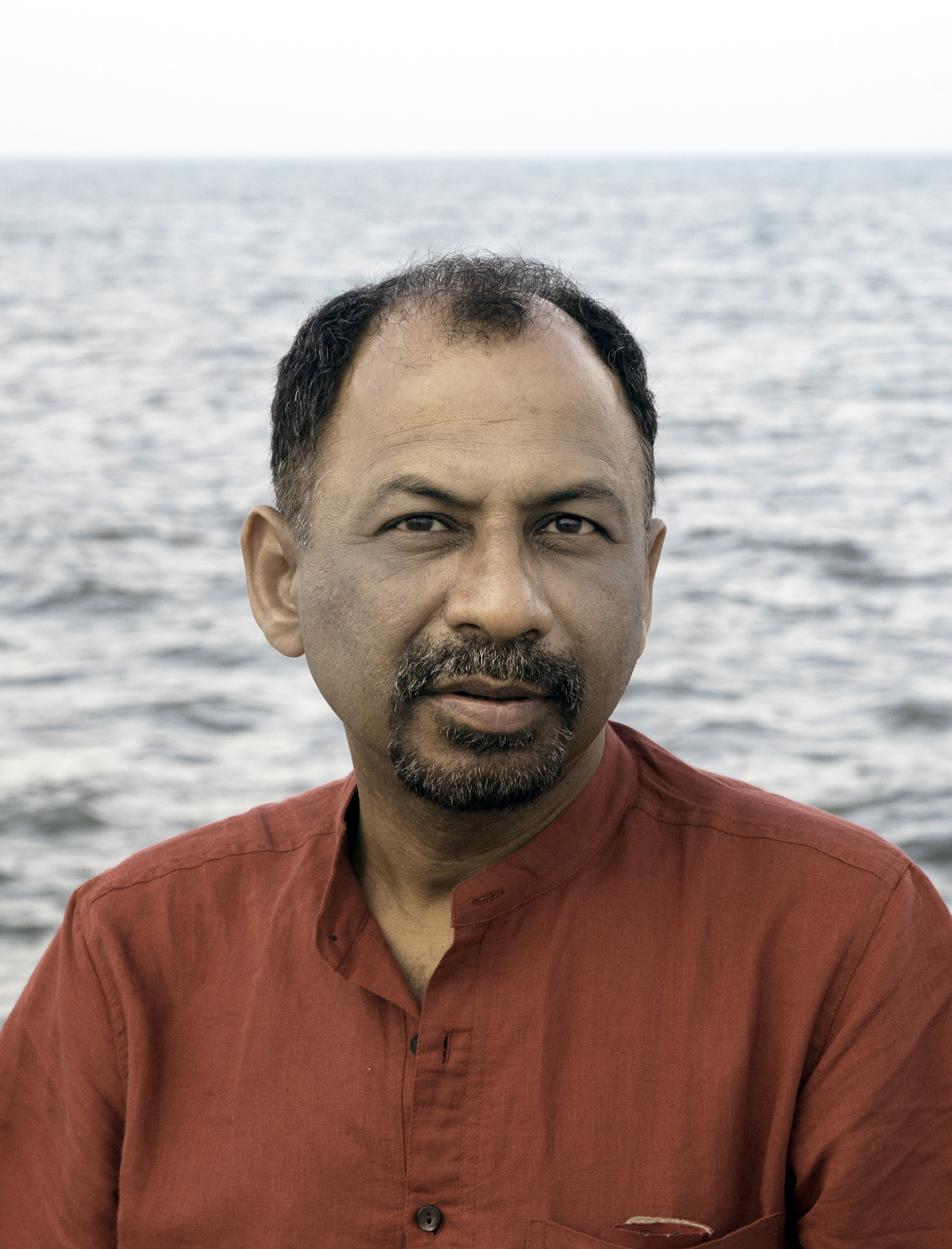Ravi Agarwal is an artist whose repertoire includes video, performance, public art, in situ installations and found objects.
He is an artist, curator, writer and photographer all rolled into one. Meet Ravi Agarwal who is also an environmental activist working in the non-governmental sector. Founder of the leading Indian environmental NGO, Toxics Link, he was initially trained as an engineer and has expanded his interests beyond.
Flash Back
The artist lives and works in New Delhi and his work explores the turbulent relationship between man and nature through the themes of urban decay and ecological sustainability. “It is central to my work, and I try and explore basic causes for this, which are. historical, as well as political and philosophical. I started photographing when I was 12 years old. Not wanting to do photojournalism or commercial photography, and there being no photography institutes in India then. I self-taught and became an engineer but kept photographing all the time. In my late teens I wanted to pursue this, but photography was not an option in art schools.” He started Toxics Link almost 30 years ago, to respond to the lack of work on urban environments. “In Toxics Link, we have help bring about 5 national legislations on waste and chemicals and several new ways of managing toxics or replacing them from public use. Our way is advocacy and help implement best practices based on research and collaborations.”
Art of the Matter
Ravi works with video, performance, public art, in situ installations and found objects and has held exhibitions at Gallery Espace; India International Centre, New Delhi; Kiran Nadar Museum Of Art, Noida; National Gallery of Modern Art, Mumbai; Contemporary Art Centre of SA, Adelaide, Australia; Orto Botanico Museum, Rome; Whitechapel Gallery, London; Kunstmuseum, Bern, Switzerland; Newark Museum, Newark and Minneapolis, USA, among others. “I work with ideas I am interested in, and the mediums I use are ones I know best. I like to challenge my own forms and hence have tried to expand my language and grammar. Public space is special since it offers other non-gallery challenges. Ultimately the work has to excite and speak to me.” He has participated in reputed international art shows such as the Sharjah Biennial in 2013; Indian Highway in 2009; Horn Please at Berne in 2007; and Documenta XI in 2002 in Kassel, Germany. In 2011, he co-curated Yamuna-Elbe, an Indo-German twin city public art and ecology project in Hamburg and Delhi.

Photo Op
His most recent work ‘Not Just Another Day’ was showcased at ‘Games Of Chance’ a show that encourages artists ‘to force viewers out of the mundane, plunging them into storms of randomness where luck and misfortune go hand-in-hand’ at Sunaparanta – Goa Centre for the Arts. His staged photographic work addresses the subject of the post-Anthropocene. This work examines the possibility of a man-made disaster looming as an everyday reality of our lives and shifts the idea of the “normal”. In a place where risk is discounted, the work questions how we cope with this as routine life. “I have been thinking of this as a series for some time of what a post Anthropocene world may look like – where everything seems normal but everything has changed fundamentally. The form so staged performance photographs is an genre I like to explore owing to its imaginative possibilities. Leandre’s curatorial invitation and note triggered off this work and help kick it off.” Ravi is inspired by exciting multilayered understated work where things are left open and unsaid but are very much present. “It is this subtle balance I think is critical for art to succeed for me.” As an author he has been published heavily and admits he likes writing and it is also as part of work. With his name in many publications, including Chemicals, Environment, Health: A Global Management Perspective, 2011; In the Shadow of the Vulture, 2009 and Immersion. Emergence, 2007. He has also contributed to Making a Difference, a collection of essays edited by Rukmani Shekhar in 1998. His publications further explore ecological issues and complement his artistic practice. “I think I feel like sharing my ideas and thoughts and hence I write. It is another form of expression for me.” Looking ahead he is doing some new work and says he has a curatorial invitation which he is excited about and promises to reveal more at a later stage.
This story first appeared in The Tribune dated Feb 9, 2020 here:

